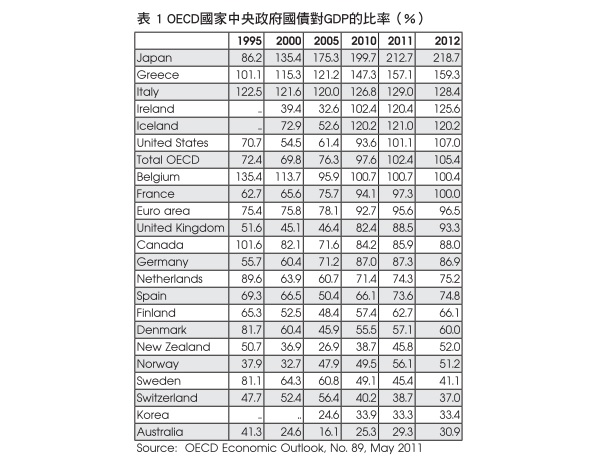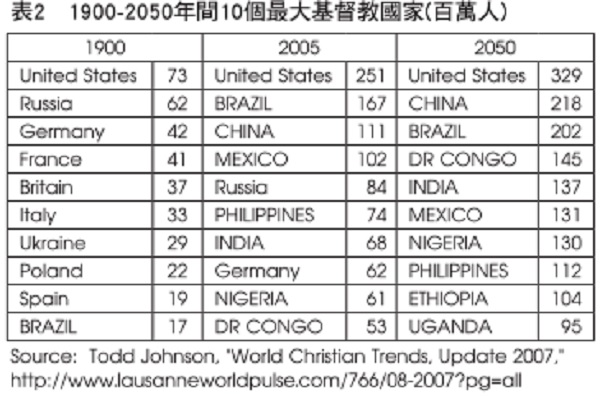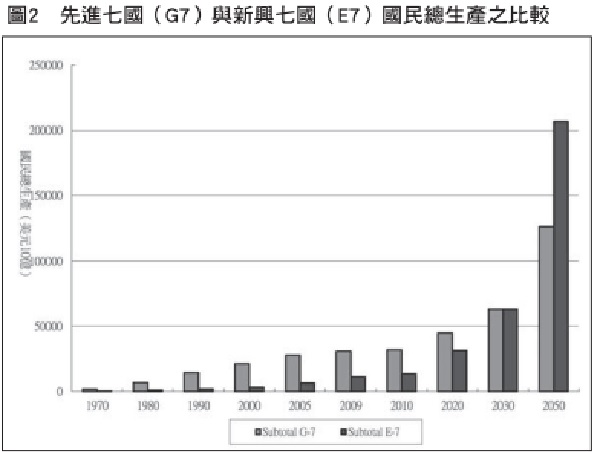Christianity and Economic Development
Please face the crisis of faith in advanced European and American countries. The center of gravity of Christianity has gradually shifted!

Blessed is the nation whose God is the Lord! Blessed is the people whom He has chosen for His inheritance! ” (Psalm 33:12)
Since the financial tsunami first swept through the United States in 2008, the global economy has been in turmoil. The U.S. economy is still affected by four highs and one low, namely the federal government's high budget deficit, high national debt, high foreign trade deficit, high unemployment rate and low economic growth rate. The European economy is not far behind. In addition to the sluggish economy, several countries have fallen into the crisis of government debt bankruptcy, especially Greece and Italy. The situation is the most serious.
As the saying goes, "Three feet of ice does not freeze in a day." Economic crises and high government debt are not sudden phenomena. This article follows my work "The Crisis of National Debt and Fiscal Deficit" (see "The Kingdom of God" magazine, Issue 22, 2010 December issue),1 Trying to explore the reasons behind this is actually related to the fact that advanced countries are gradually moving away from the belief in the true God. The purpose of this article therefore aims to explore:
(1) The impact of Christian faith tradition on world economic development;
(2) The current global politics and economy show the growing trend of "advanced countries gradually drifting away from God and suffering disaster" and "developing countries being blessed because of the increase in the number of people who believe in the true God."
1. Industrially advanced countries and Christianity
1. What is an industrially advanced country: Introduction to the Organization for Economic Co-operation and Development (OECD)
After World War II, from the 1950s to the present, the world can be roughly divided into two camps: developed (developed) countries and developing countries. For a period of time, the socialist countries dominated by the Communist Party became another camp. However, judging from the backwardness of their economic development, they should still be regarded as developing countries.
Developed countries, also known as advanced countries or industrial countries, are also initial members of the Organization for Economic Co-operation and Development. The OECD was founded in 1961 and consists of 18 European Economic Cooperation Organizations, the United States and Canada. Later, other advanced countries were added, with a total of 22 member countries, which can be called a club of developed countries.2
After 1994, the OECD began to accept "emerging" developing countries (referring to rapidly developing countries) to join, such as Poland, Hungary, the Czech Republic and Slovakia, Mexico, South Korea and Turkey. There are currently 34 OECD member countries, covering countries in North and South America, Europe and the Asia-Pacific region, as well as the European Union.
The economic strength of the OECD plus the BRICS (BRICS, the English abbreviation of Brazil, Russia, India, China, and South Africa) dominates the global economy, accounting for 80% of the world's total trade.3
In addition, the most important country groups affecting the world economy include the Group of Seven advanced countries (G7, Group 7) and the Group of Seven emerging countries (E7, Emerging 7). The G7 refers to Canada, Germany, France, Italy, Japan, the United Kingdom and the United States, while the Emerging Seven refers to China, India, Brazil, Russia, Mexico, Indonesia and Turkey. The G7 currently accounts for 70% of the world's total national income, while the G7's total national income is still far behind the G7 (see below).
2. Economic development is directly proportional to Christianity
Whether a country is included in the forest of advanced countries depends on whether the country belongs to the Development Assistance Committee (DAC) in the OECD.4 In the past, 22 industrial countries participated. In recent years, it has included South Korea and the European Commission (EU), with a total of 24 members.5 Among these 23 industrialized countries, except Japan and South Korea, they have always been deeply influenced by Christianity, but Japan and South Korea can be said to be indirectly affected.
During the Meiji Restoration era (1868-1912), the Japanese government worked hard to govern, adopted British and Western political, economic and social systems and regulations, promoted technological and industrial development, and became a military power at the end of the 19th century, which also made Japan an industrialized country.6 The Christian population in South Korea has accounted for 30% of the total population. It is growing rapidly in all aspects. Thousands of missionaries have been sent overseas to preach the gospel, making it a country blessed by God. The other three emerging industrial countries or economies among the Four Southeast Asian Tigers, such as Taiwan, Singapore, and Hong Kong, have also been indirectly affected. This shows that Christianity does have a great impact on economic development.
3. The Protestant Reformation drove the Industrial Revolution and Capitalism
German sociologist and economist Max Weber (1864-1920) believed that the Protestant Reformation that began around 1517 was the main cause of the Industrial Revolution and the rise of capitalism, and also contributed to the formation of modern society.7 The teachings of the Protestants, especially John Calvin (1509-1564), were very different from the Catholic teachings of the time.
Protestantism emphasized self-sufficiency, frugality, and the establishment of an intimate relationship between individuals and God (unlike Catholicism, which teaches believers to establish a relationship with God through priests), which influenced the thinking and pace of subsequent economic development. Frugality is the basic attitude that encourages saving and investment, which led to the rise of capitalism and the industrial revolution.8
Weber believes that believers in Calvinism have formed the ethics of Protestantism, which has influenced many people to work in the secular world. The workplace is where believers serve God, and they must do their best, thus inspiring believers to develop their own businesses, engage in trade, and accumulate wealth. Wealth eventually contributed to the formation of capitalism and the Industrial Revolution of the mid-eighteenth and early nineteenth centuries.
The Industrial Revolution first started in Britain and Western Europe, Germany and France, spread to North America, and later continued to Spain, Portugal and Italy in southern Europe.9 The belief in working for God takes into account both justice and charity, which also promotes the development of democratic systems, even reduces the corruption of government officials, and increases social welfare and charitable donations.10 Emphasizing compliance with law and order to achieve fairness and justice, donating to charities and reducing corruption, and paying attention to human rights have also become universal values. According to the Corruption Perception Index ranking released by Transparency International, most of the cleanest countries in the world are industrial countries with a Christian tradition.11 In addition, the countries that donate the most to charities and aid abroad are also these industrial countries.
Based on data from 1975 to 1997, the author and Wang Yuzhong used regression equations to estimate the relationship between a country's main religious beliefs and economic development (with national income as the representative variable). They found that the top three countries with a positive relationship were, in order, Protestantism. , Confucian culture, Catholic countries, other religions are not obvious, while Islamic countries have a negative correlation. Demonstrating Christian ethics within these sample values is indeed a major driver of economic development and progress.12
2. The rise and fall of Christianity in industrialized countries and developing countries
From the above discussion, we can see that the reason why the advanced industrial countries in Europe and the United States (the North Country) are strong is that they founded the country with God and abided by the teachings of the Bible. Therefore, they were greatly blessed by God. Not only did the country become rich and the people strong, but democracy and capitalism coexisted, and they also sent many missionaries. Go overseas to preach the gospel. However, in the past half century, we have seen that the industrially advanced countries have gradually turned away from God and lived a life of waste and pursuit of material comfort, thus falling into the tragic situation of not believing in God and being self-centered. On the other hand, Christianity is increasingly prosperous in developing countries (Southern countries), and the international political and economic situation has also undergone fundamental changes.
Europe and North America have always been important centers of Christianity. For example, the 140 years of British Empire rule (1801-1940) can be called a period of rapid advancement in human knowledge. During this period, the British loved the Lord devoutly and sent countless missionaries overseas, blessing all nations. As a result of the widespread spread of the gospel, China and India directly and indirectly led to the establishment of many democratic countries.
Especially during the 64-year reign of Queen Victoria (1837-1901), it was the era of the most exploration and discovery of the world in history. It was also the era when Christianity was most prosperous in the UK. On Sundays, there were very few people on the street, and they all worshiped in churches. Worship God.13
However, in the past half century, these industrially advanced countries have gradually become secularized, and the number of people who believe in Christianity has gradually decreased. The United States was originally a country founded on God (In God We Trust), and this sentence was printed on the US dollar bills. However, since the Supreme Court ruled on the principle of "separation of church and state" in 1948, the courts have gradually tilted towards secularism.14 Many countries in Europe have gradually become gospel deserts.
The past four great spiritual revivals in the world all occurred in the United States: 1734, 1792, 1858, and 1904-1905. The fifth renaissance is in developing countries outside the United States, especially Africa. China's Christian population is also increasing rapidly. According to the latest survey, there are currently 150 million Christians in China, of whom 80% are Protestants and 20% are Catholics. This is 140 times the number of approximately 750,000 Christians in 1949 when New China was founded.15
According to a 2007 survey, an average of 82,000 people believe in Christ every day around the world, of which 32,000 are in Africa, 25,000 in Asia, and 17,000 in Latin America. The number of Islamic believers is also increasing rapidly, and they have received special grace from God. Many believe in the Lord through seeing the Lord Jesus in dreams. However, the average number of new believers in North America and Europe combined is only 6,000 per day.
The same survey found that the proportion of Americans claiming to be Christians dropped from 86% in 1990 to 76%; those with no religious affiliation accounted for 15% (double); the number of people claiming to be atheist or agnostic increased four times, which is the number of Episcopalians in the United States. twice.16 In addition, a survey on Americans’ beliefs found that 28% Americans left the faith they grew up in to convert to other religions or do not believe in any religion; secondly, a quarter of the respondents aged 18 to 29 said they did not belong to any religion. .17
The spiritual climate in Europe is even worse: according to a recent survey of major European countries and the United States, those who believe in "any form of God or supreme master" are 73% in the United States; 62% in Italy; 48% in Spain; 48% in Germany; 35% in the United Kingdom; and 35% in France. 27%.
There are four times as many Muslims in the UK attending Friday services as Christians attending Sunday services. Among the population of Brussels, Belgium, 25% are Muslims. There are 54 million Muslims in Europe and counting.18
In addition, it was reported in 2009 that there are at least 85 Muslim Sharia Courts in the UK, most of which are dominated by mosques. They mainly deal with financial and family disputes among Muslims. Their judgments are not made public and many violate universal human rights values. case. Among these courts, only five tribunals scattered in major metropolitan areas in the UK are subject to the supervision and execution of British courts in accordance with the Arbitration Act passed in 1996. The others are not under the jurisdiction of British judicial authorities.19
The consequence of the advanced countries in Europe and the United States gradually moving away from the true God and abandoning the Bible is that the center of gravity of Christianity has gradually shifted from the North (developed countries) to the South (developing countries). Fortunately, the American people have not yet blatantly abandoned God. At least the words "God founded the country" are still printed on the U.S. dollar bills, and the state constitutions of the fifty states in the United States still recognize the Supreme God without exception. Ask God for special mercy and mercy to give America a chance to revive. As for Europe, the situation is very dangerous. Europeans must return to the true God to avoid the curse coming quickly.
3. The consequences of advanced countries moving away from God
The results of advanced countries gradually leaving Christianity have the following interrelated trends: (1) The debt of advanced countries has increased significantly, triggering the financial crisis in 2008 and the European debt crisis that began in 2010; (2) The increase in the Christian population in developing countries has increased significantly, the center of gravity of Christianity has gradually moved southward; (3) the center of world political and economic center has also moved southward.
1. Increase in debt in advanced countries
My article "The Crisis of National Debt and Budget Deficits" has briefly described the crisis of debt and central government fiscal deficits in the United States and other industrial countries, and used Deuteronomy 28 to explain that countries that obey God's commandments will be blessed and will not be in debt. instead of lending money to foreign nations; nations that do not obey the commandments will be cursed and become debtor nations.
Especially in the United States, the national debt of the federal government exceeded 15 trillion in 2011, accounting for almost 100% of the gross domestic product (GDP). It was originally a net creditor country, but it became a net debtor country in 1986. It is currently the largest net debtor country in the world.20 Table 1 lists the ratio of national debt to gross domestic product (GDP) of the central governments of several advanced countries in the OECD. It can be seen that the national debt of many European and American countries exceeds GDP. If not properly resolved, the chance of an economic crisis still exists.

2. The center of gravity of Christianity moves southward
As the Christian population dwindles in advanced countries and increases in developing countries, Christianity's center of gravity shifts significantly southward. According to research by Lausanne World Pulse, the center of Christianity has moved from the early church in Jerusalem to Europe, and now the center of gravity has reached Africa (Figure 1).

Between 1900 and 2050, more than half of Christian countries were advanced countries in 1900. By 2000, only two countries (the United States and Germany) were left. By 2050, it is estimated that only the United States will be left, and the rest are developing countries today. (Table 2).

In addition, according to estimates by Operation World, between 1900 and 2025, the Christian population in the world's five continents, especially the proportion of Protestants in the total population, also shows a "trend of falling in Europe and the United States, and increasing in Asia, Africa, and Latin America" - please see Table 3 , showing the total Christian population, and Table 4 , showing the Protestant population.

3. The world’s political and economic forces are changing
Due to high debt levels and slow economic growth in many countries in Europe and the United States, their gross national product has gradually been overtaken by emerging developing countries that are growing faster and have less debt, especially emerging powers such as the BRICS.
The expansion of economic power also represents the expansion of political power. In the past, the G7 could control the development of the world economic situation, but in recent years it has evolved into the G20 (G20, Group 20, officially established at the end of 1999), which includes emerging developing countries, to determine the direction of the global economy.
The decision-making power of the international financial institutions led by the International Monetary Fund (IMF) and the World Bank has also been decided by the Group of Seven in the past. It has become a common struggle of the Group of 20, among which the United States and China are the most powerful. .

The G20 countries account for 80% of the world's gross national product, 80% of foreign trade, and two-thirds of the world's population.21The recent G20 meetings have required advanced countries to carry out financial reforms and reduce debt. Coupled with the unprecedented downgrade of U.S. government bonds from the highest rating AAA to the sub-tier AA+ by Standard & Poor's credit rating agency (August 5, 2011), Italian government bonds were downgraded by Moody's (from Aa2 to A2, October 4, 2011 ), and then France and several other euro zone countries were also downgraded, making the momentum of advanced countries even worse.
In line with the Christian tradition, advanced countries have always been very generous in assisting poor countries, allowing many developing countries to quickly escape poverty and achieve economic growth. The newly industrialized countries should not be underestimated, especially the emerging G7 countries. It is estimated that in 1970, the GNP calculated based on official exchange rates, the emerging seven countries only accounted for 19% of the advanced seven countries, and the ratio reached 43% in 2010; the ratio will rise to 70% in 2020, and catch up with 100% in 2030.
By 2050, the emerging seven countries are expected to be 1.64 times that of the advanced seven countries (see Figure 2). If the purchasing power evaluation method is used (commodities that can be purchased with the national currency are calculated using US commodity prices), the ratio in 2010 has been as high as 77% (compared with 43%), and the emerging seven countries will soon surpass the advanced seven countries.22 Even according to estimates by the International Monetary Fund, China's gross national product, measured by purchasing power evaluation, will surpass that of the United States in 2016.23

4. Crisis of faith
After deep reflection, it can be said that the debt problems and national decline in Europe and the United States are rooted in the loss of faith. Israel disobeyed God's commandments and strayed away from God and was cursed. There are many examples in history.
On the other hand, in developing countries that have always been poor, after half a century of struggle, Christianity has been greatly revived on all continents. The center of gravity of Christianity has begun to shift southward, becoming a place blessed by God. This has also led to an increase in political and economic power, and gradually no longer needs to rely on the support of advanced countries. breath. During the ups and downs, we can faintly see God’s hand in control, as Psalm 33:12 says:"Blessed is the nation whose God is the Lord! Blessed is the people whom He has chosen as his inheritance!"
Faced with this crisis of faith, people in European and American countries should reflect deeply and return to their faith in the true God in order to continue to be blessed. I hope that the Chinese church will learn from this and work hard to spread the gospel. I believe that the country and nation will be greatly blessed."Praise the LORD! Blessed is the man who fears the LORD and delights in his commandments! His descendants will be strong in the world, and the descendants of the upright will be blessed. There will be goods and wealth in his house; his righteousness will endure. Forever." (Psalm 112:1-3)
*The 23 annotations of this article cannot be published due to space limitations. Readers in need are welcome to request them from the author of this article by email: yinkann@e-krc.org
Or see the full text published on the author’s blog: www.ykwen.blogspot.com
 Author profile:
Author profile:
Wen Yingqian is currently an honorary professor at National Dong Hwa University in Taiwan. Director of Chinese Outreach Ministry of Crown Financial Ministries in the United States and lecturer of KRC Investment and Financial Management Camp.
